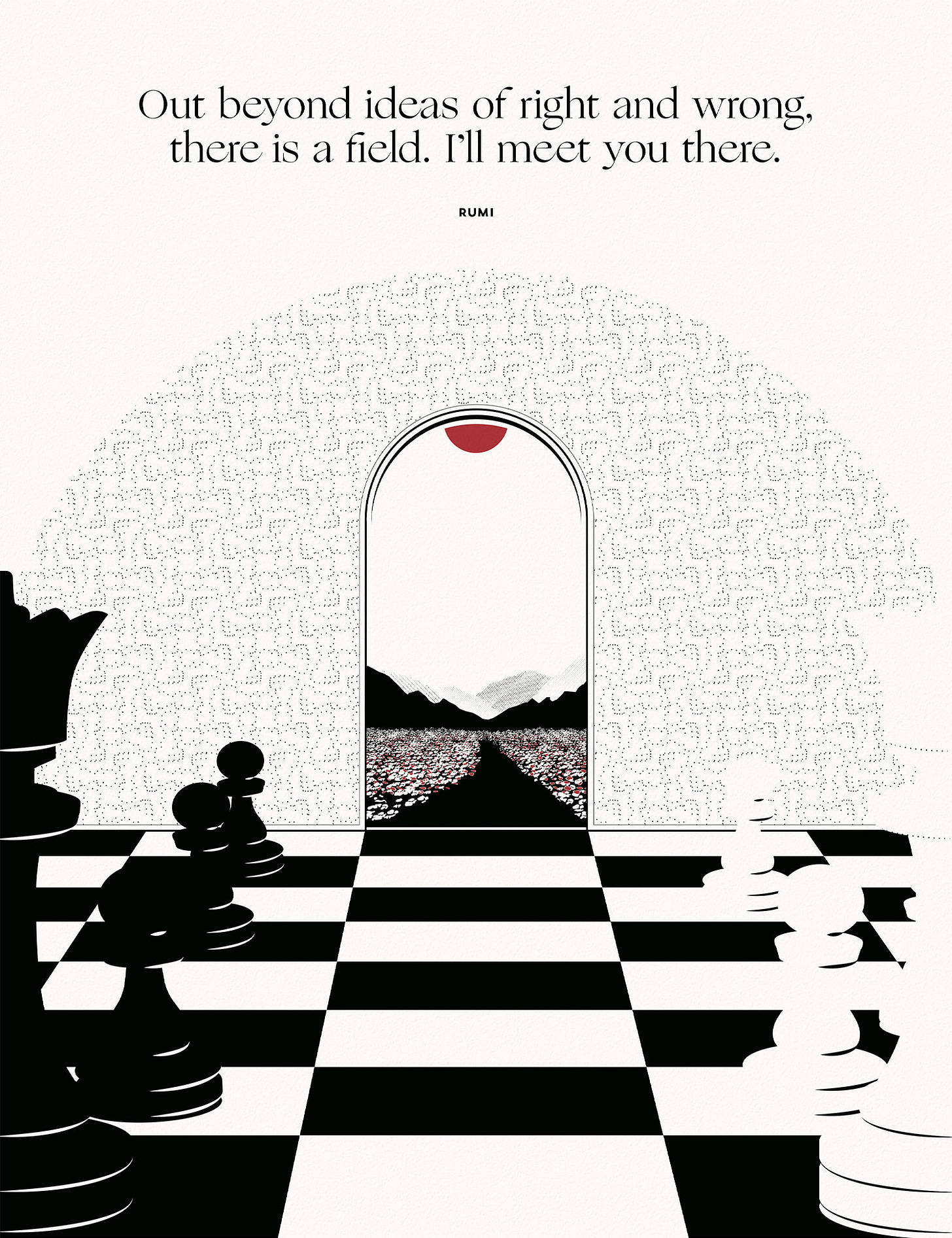
Rumi on the Possibility of Transcending Conflict
“Out beyond ideas of right and wrong, there is a field. I’ll meet you there.” - Rumi.
I wouldn’t blame you for involuntarily dry-heaving at the notion of listening to Madonna read Rumi to the new age pulse of synth pads and Garage Band world-music drum loops. But we could find these kitschy contrivances weighing down the genius of almost any renowned writer. Try as we might, will we ever forget William Shatner’s Hamlet?
But how wonderful and strange that an 800 year-old Persian poet would be the best selling poet in the English speaking world? Yes, there's the filter of translation to nitpick, which sharpens some aspects of Rumi’s language and dilutes others. But something powerful, universal and deeply human comes through so palpably that we are transfixed by his almost magical rhetorical power to summon endlessly new ways to see the world with fresh eyes.
I won’t go on too much about what makes his poetry awesome, as broad descriptions of Rumi can devolve into sentimental gobbledygook very quickly. But these days, I find myself in need of Rumi’s peerless ability to rise above the fray of human conflict, earthly suffering and the intolerance and dogmatism that our worst passions engender.
Rumi was deeply spiritual, but not a zealot. His spirituality was so consuming and universal, that he went beyond simple devotion to an ecstatic creativity, from prayer to poetry, and in doing so effectively wrote a second holy book of Sufism. He reached toward the sublime and rejected the basest human instincts. He will always be a guide to us, if we care to listen.
About the Art
“A chess board of black and white pieces competing in a zero-sum game to dominate the tightly regimented space. Beyond the edge of the board, a doorway opens to better possibilities, that can only be found together.”
Art by Evan Robertson. All rights reserved.


